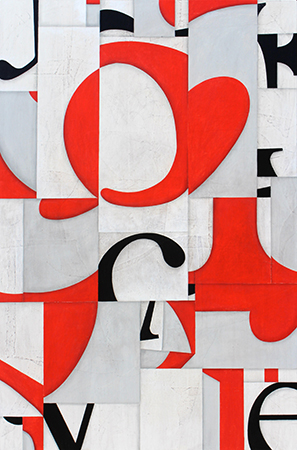Languaging and Emergent Scapes of the Intelligible: Thinking through an Experiment in Affective Mapping
DOI:
https://doi.org/10.25071/1925-5624.40335Keywords:
languaging, diffraction, affect, translation, ecolinguisticsAbstract
What would it mean to explore questions of translation and linguistic diversity from within an ecological approach that foregrounds the constitutive entanglement of languaging patterns with place-making behaviours, whereby language-use signals the affective import of belonging as much as its precarious hold within cosmopolitan urban contexts characterized by extensive phenomena of displacement, mobility and migration? Drawing on insights brought about by contemporary research in ecolinguistics, affect theory and science and technology studies, this paper explores the potential value of such an approach by means of discussing an art project designed as an experiment in affective mapping of a central artery of the city of Toronto, called Transitions in Progress. Making Space for Place (2015).References
Armstrong, Frederick H. A City in the Making: Progress, People and Perils in Victorian Toronto. Dundurn Press, 1988.
Barad, Karen. Meeting the Universe Halfway: Quantum Physics and the Entanglement of Matter and Meaning. Duke University Press, 2007. DOI: https://doi.org/10.1215/9780822388128
Bennett, Jane. Vibrant Matter. Duke University Press, 2009. DOI: https://doi.org/10.1215/9780822391623
Buiani, Roberta. “Beyond the Map: An Experiment in Affective Geographies.” Noema, 5, June 2016, noemalab.eu/ideas/beyond-the-map-an-experiment-in-affectivegeographies/. Accessed 7 Dec. 2017.
Becker, A. L. Beyond Translation: Essays Towards a Modern Philology. University of Michigan Press, 1995. DOI: https://doi.org/10.3998/mpub.13805
Chow, Rey. Not Like a Native Speaker: On Languaging as a Postcolonial Experience. Columbia University Press, 2014. DOI: https://doi.org/10.7312/chow15144
Cronin, Michael and Sherry Simon. “Introduction: The city as translation zone.” Translation Studies, vol. 7, no.2, 2014, 119-132. DOI: https://doi.org/10.1080/14781700.2014.897641
Haraway, Donna J.. Modest_Witness@Second_Millenium. FemaleMan©_Meets_Oncomouse™: Feminism and Technoscience. Routledge, 1997.
Gynne, Annaliina, and Sanajeeta Bagga-Gupta. “Languaging in the Twenty-first Century: Exploring Modalities and Varieties in Literacies inside and outside Learning spaces,” in Language and Education, vol. 29, no. 6, 2015, p. 509-526. DOI: https://doi.org/10.1080/09500782.2015.1053812
Jensen, Thomas W. “Emotion in Languaging: Languaging as Affective, Adaptive and Flexible Behaviour in Social Interaction.” Frontiers in Psychology, vol. 5, July 2014, Article 720. DOI: https://doi.org/10.3389/fpsyg.2014.00720
Kaiser, Birgit Mara. “Worlding Comp Lit: Diffractive Reading with Barad, Glissant and Nancy.” Parallax, vol. 20, no. 3, 2014, pp. 274-287. DOI: https://doi.org/10.1080/13534645.2014.927634
Kier, Bailey. “Interdependent, Ecological Transsex: Notes on Re/Production, ‘Transgender Fish’ and the Management of Populations, Species and Resources.” Transgender Studies Reader 2, edited by Aren Aizura and Susan Stryker, Routledge, 2013, pp. 299-319. DOI: https://doi.org/10.1080/0740770X.2010.529254
Kravchenko, A.V. “Two Views on Language Ecology and Ecolinguistics.” Language Sciences, vol. 54, 2016, pp.102-113. DOI: https://doi.org/10.1016/j.langsci.2015.12.002
Mignolo, Walter. “Linguistic Maps, Literary Geographies and Cultural Landscapes: Language, Languaging and (Trans)nationalism.” Modern Languages Quarterly, vol. 57, no. 2, 1996, pp. 181-196. DOI: https://doi.org/10.1215/00267929-57-2-181
PARC. “Mission-Vision-Values.” Parkdale Activity-Recreation Centre, parc.on.ca/about/mission-vision-values/. Accessed 24 Nov. 2017.
“Performigrations: Transitions in Progress. Making Space for Place.” Vimeo. Posted by Roberta Buiani, 2015. vimeo.com/156919874. Accessed 7 Dec. 2017.
Phipps, Alison and Mike Gonzales. Modern Languages: Learning and Teaching in an Intercultural Field. Sage, 2004.
Sassen, Saskia. The Global City: New York, London, Tokyo. Princeton University Press, 2001. DOI: https://doi.org/10.1515/9781400847488
Steffensen, Sune Vork and Alwin Fill. “Ecolinguistics: The State of the Art and Future Horizons.” Language Sciences, vol. 41, 2014, pp. 6-25. DOI: https://doi.org/10.1016/j.langsci.2013.08.003
Swain, Merrill. “Talking it through. Languaging as a Source of Learning.” Sociocognitive Perspectives in Second Language Learning and Use, edited by Rob Batstone, Oxford University Press, 2006, pp.112-130
Thibault, Paul J. “The Reflexivity of Human Languaging and Nigel Love’s Two Orders of Language.” Language Sciences, vol. 61, 2017, pp. 74-85. DOI: https://doi.org/10.1016/j.langsci.2016.09.014
van Lier, Leo. “An Ecological-Semiotic Perspective on Language and Linguistics.” Language Acquisition and Language Socialization. Ecological Perspectives, edited by Claire Kramsch, Continuum, 2002, pp. 140-164.
Warner, Michael. Publics and Counterpublics. Zone Books, 1996.
How to Cite
Issue
Section
License

This work is licensed under a Creative Commons Attribution-NonCommercial-NoDerivs 3.0 Unported License.

